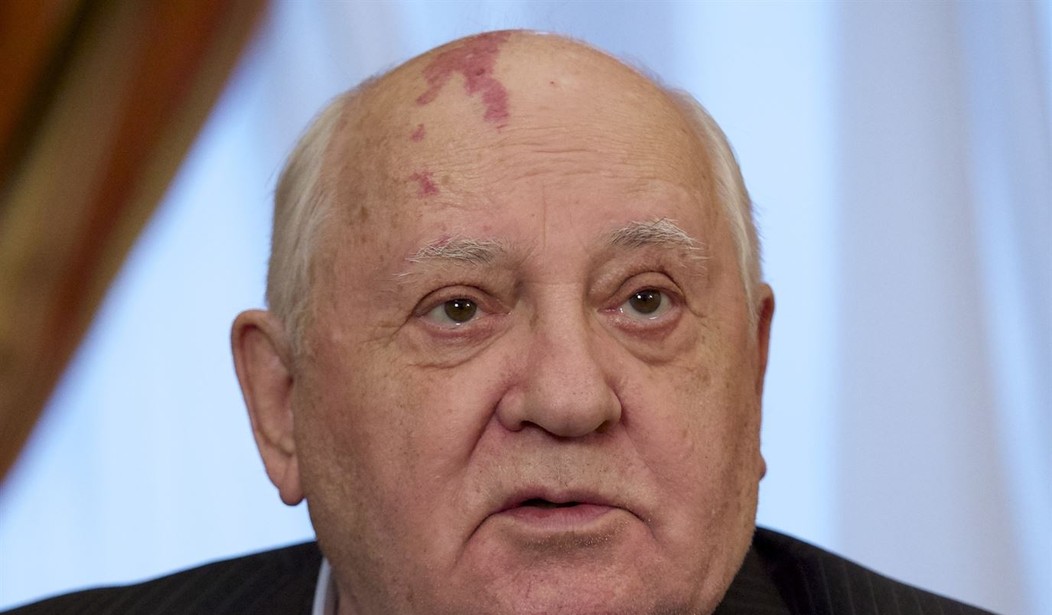Mikhail Gorbachev, the eighth and last leader of the Soviet Union from 1985 until 1991, died on Tuesday at the age of 91. According to a hospital in Moscow, Gorbachev had been suffering from a "serious and long illness" before his passing. According to AP, his death was confirmed by other Russian outlets including Tass, RIA Novosti and Interfax.
The last leader of the USSR, Mikhail Gorbachev, has died. pic.twitter.com/aX2SBqfqS0
— Franak Viacorka (@franakviacorka) August 30, 2022
Gorbachev's time leading the Soviet Union was marked by his decision to withdraw from Afghanistan, pursue summits with the free world via President Ronald Reagan, and the ultimate dissolution of the USSR. His policies of perestroika and glasnost were welcomed by the outside world with hope that some liberalization would come along with his leadership. Those policies, along with more openness, shook the "Evil Empire" enough to speed up and bring about its demise as freedom triumphed over Gorbachev's Soviet communism.
Of the Cold War meetings between Gorbachev and Reagan, one of the most consequential was their October 1986 summit in Reykjavik, Iceland. The Soviets likely knew they'd ultimately lose an arms race to the United States and desperately wanted Reagan to kill off America's Strategic Defense Initiative (SDI, aka Star Wars).
Despite Gorbachev's attempts to coax Reagan to stop the program with an offered concession for Russia to limit its long-range weapons, Reagan stuck to his guns and refused to budge. In the end, Reagan left Reykjavik without a deal, one of the major examples of his winning "peace through strength" foreign policy. Ultimately, Reagan and the free world — with the help of Prime Minister Margaret Thatcher and Pope John Paul II — succeeded in toppling the Soviet Union and liberating millions in Eastern Europe.
Recommended
Mikhail Gorbachev, who died today, unsuccessfully tried to coax Ronald Reagan into abandoning SDI at the Reykjavik summit in October, 1986. Reagan said "Nyet." The Soviet Union dissolved in December, 1991. #PeaceThroughStrength
— Hugh Hewitt (@hughhewitt) August 30, 2022
Thatcher once described Gorbachev as "a man with whom I could do business," and while he believed in the tenets of communism, did not fight to a brutal end to hold the USSR together by force as Reagan, Thatcher, and others put cracks in the Iron Curtain between Gorbachev's "Evil Empire" and the free world.
In his later years, Gorbachev was outspoken against Russian presidents Boris Yeltsin and Vladimir Putin, and most recently voiced his disagreement with the decision to invade Ukraine.
























Join the conversation as a VIP Member